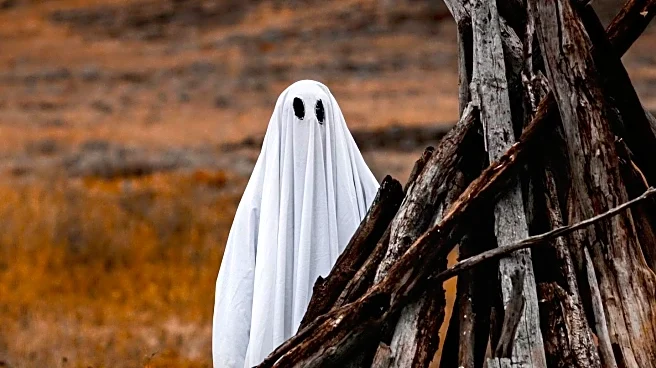What's Happening?
An educational initiative is encouraging teachers to incorporate ghost stories and urban legends into their curriculum, particularly around Halloween. This approach is being used to engage students with
local history and cultural narratives. The curriculum involves analyzing local legends and their sociological and psychological roots, followed by field trips to relevant sites. The initiative aims to foster a deeper connection between students and their communities by exploring the historical context and cultural significance of these stories.
Why It's Important?
This educational approach highlights the importance of cultural literacy and community engagement in education. By studying local legends, students can develop a sense of identity and belonging, which is crucial for civic engagement and community involvement. The initiative also emphasizes the development of critical thinking and research skills, as students learn to differentiate between fact and fiction. This method of teaching can help students appreciate the cultural heritage of their communities and understand the role of storytelling in shaping societal values.
What's Next?
Educators may continue to expand this curriculum to include more diverse cultural narratives and legends from various communities. This could lead to a broader understanding of cultural diversity and the role of folklore in different societies. Additionally, there may be further integration of technology in the classroom to enhance the learning experience, such as using digital archives and interactive media to explore these stories.
Beyond the Headlines
The use of urban legends in education also raises questions about the ethical implications of storytelling and the potential for perpetuating stereotypes or misinformation. Educators must navigate these challenges carefully to ensure that the stories are used to promote understanding and respect for different cultures.









